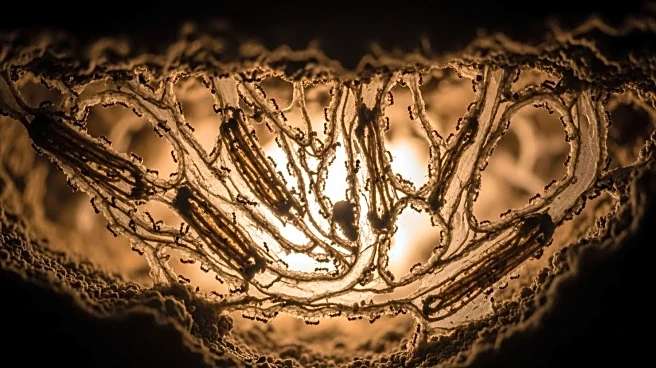What's Happening?
Ants have been practicing agriculture for millions of years, according to a study co-authored by Ted Schultz from the Smithsonian's National Museum of Natural History. The research highlights attine ants, which cultivate fungus gardens using leaves as a growth medium. This practice began around 65 million years ago, coinciding with the asteroid impact that led to the extinction of dinosaurs. The ants' agricultural methods have allowed them to thrive by ensuring a consistent food supply, although they are now entirely dependent on their cultivated fungi for survival. Additionally, some ant species engage in animal husbandry by managing aphid colonies for honeydew production.
Why It's Important?
The discovery of ants' ancient agricultural practices provides insight into the complexity and adaptability of these insects. Their ability to cultivate fungi and manage aphid colonies demonstrates a sophisticated level of ecological interaction and resource management. This knowledge could inspire new approaches in human agriculture, emphasizing symbiotic relationships and sustainable practices. The ants' dependency on their crops also serves as a cautionary tale about the risks of monoculture and the importance of biodiversity in agricultural systems.










